OK, this lovely woman actually described me as a “garden goddess” and I think that’s hilarious and sweet…
But I’m here to tell you, community gardening is not for the weak of will or the faint of heart.
It’s one thing when you’re community gardening in a smallish city within a major metropolitan area just a hop, skip, and a jump from the nation’s capital. There, where people use words like “locavore” in casual conversation, the weekly farmer’s market is a social event, and the food justice film series draws packed houses every night, all sorts of never-before-imagined things are possible. Why, inspired by the experience of working in a highly diverse, historically African American neighborhood that’s now home to a bracing mix of students, young marrieds, traditional residents and refugee families,
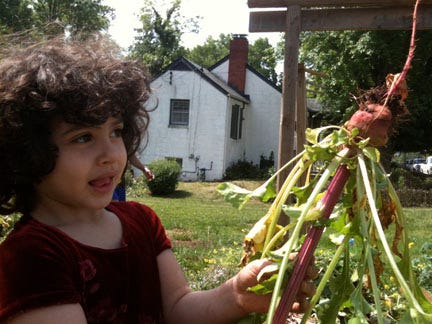
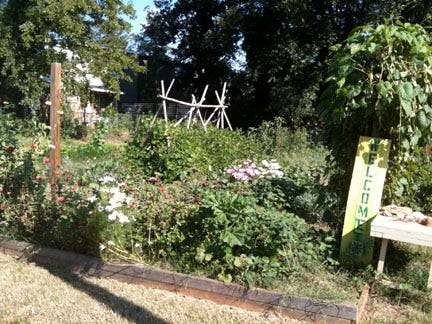

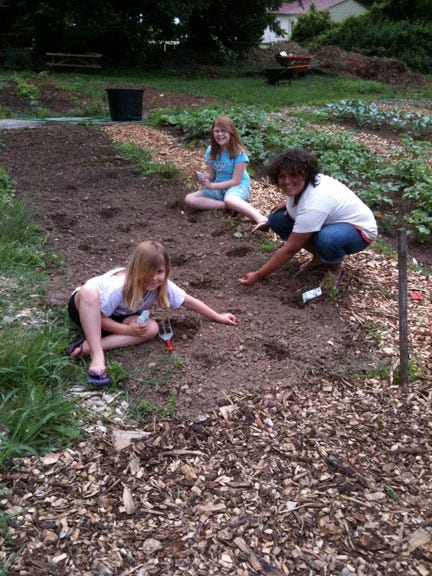
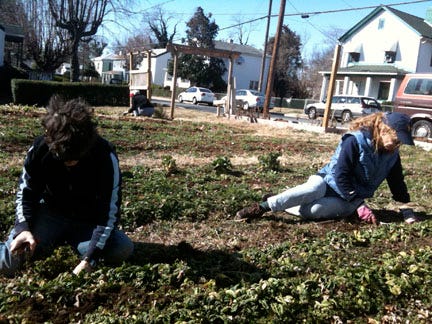
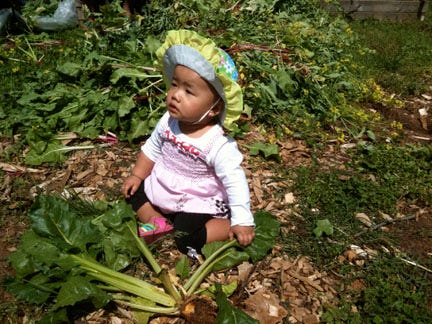
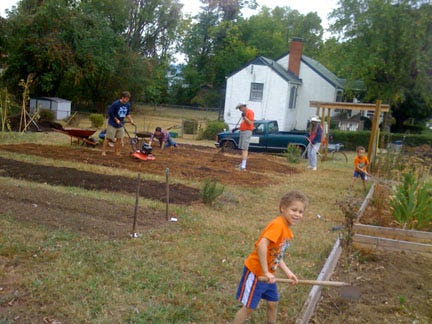
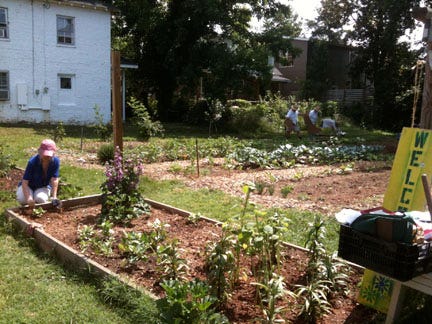
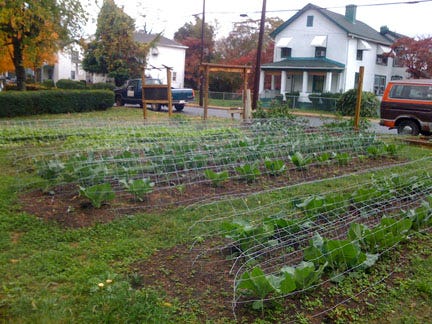
one’s church might go out and raise $90,000 to install a commercial kitchen and then recruit a team garden angels to create a vision and transform the grounds …

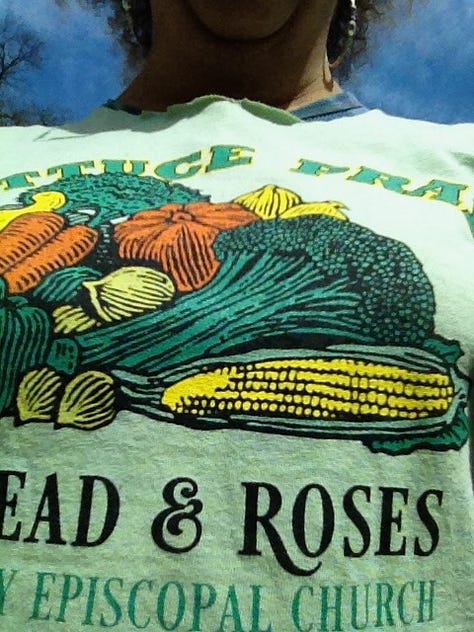
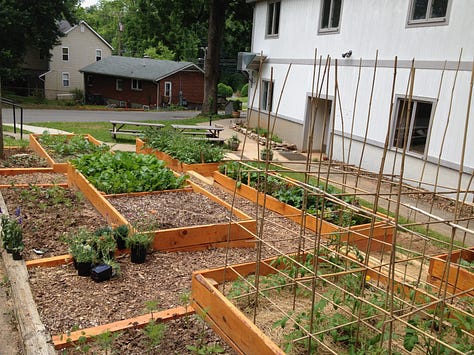
on the way to creating a major diocesan outreach ministry organized around the idea of a just food system.
Soooo…. my little town is great and we came off well in the WSPA “zip trip” to Clinton—the garden segment was one of more than a dozen highlighting local businesses and community initiatives—but none of that could ever happen here. We are a tenth the size of Charlottesville and median income here is just above half of theirs.
We also happen to be food desert.


I think my first clue that in moving to farm country I had also moved to a food desert was the fact that all directions were provided in terms of the distance to Walmart. It’s not far—it’s only five minutes from Walmart. Oh, you’re looking at a place in Mountville? Just remember, that’s a whole half hour to Walmart.
When, stubbornly, I attempted to continue my big-box boycott, I found glassy pink tomatoes, limp greens, and dessicated cabbages at the local grocery chain. In midsummer. In a state with an 11-month growing season. Apparently that’s what you get when your town is so small you’re the last stop on the run from the warehouse.
Earnest questioning helped me discover there was, in fact, a CSA, but we had arrived in the middle of the growing season—too late to sign up. Sure, there was a farmer’s market! I was assured. Thirty miles away, across the lake, in Greenwood. The nearest “organic food scene”? Sorry, you’d travel an hour for that.
That was then. And viewed from the perspective of where the town started, what has unfolded here in Clinton could be classified as nothing short of a miracle. We lost our CSA—it was a big loss, too. The farmer was in her seventies and, sadly for us, retired before the concept caught on. But for eight years now, we’ve had a community garden.
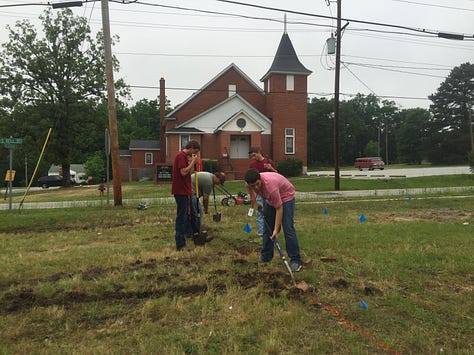


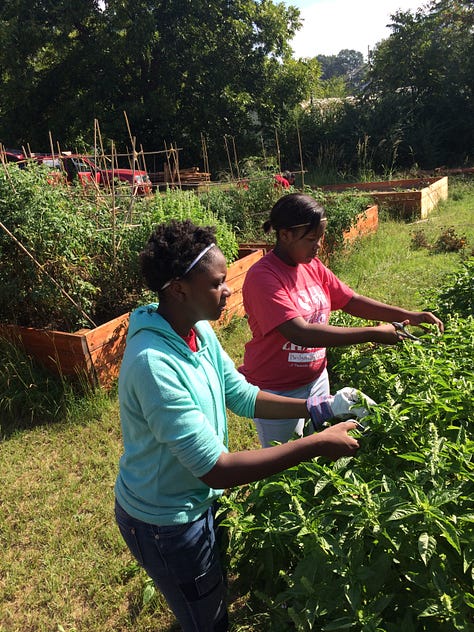
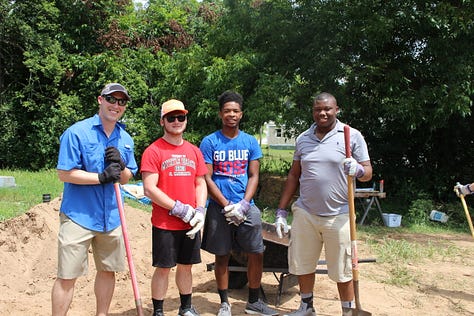
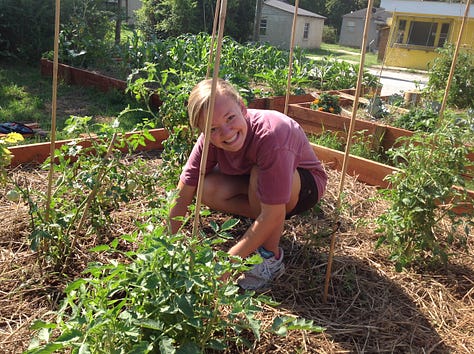
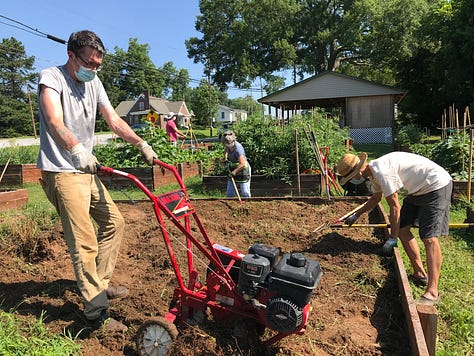
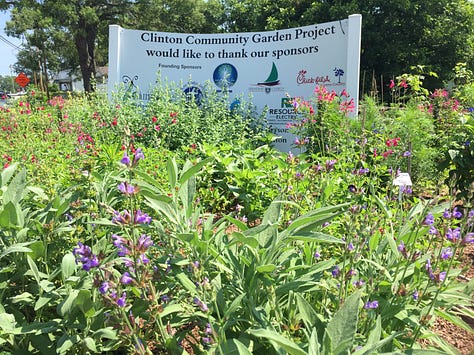
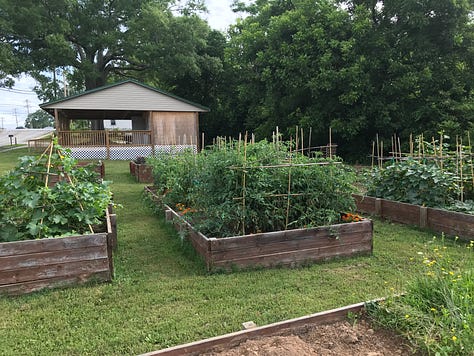
The community garden has allowed us to make friends and make a difference in our small way, with classes and health screenings and seed swaps growing awareness along with friendships. And now the community garden has company. We’ve got Clinton Canopy beautifying our formerly desolate-looking downtown, with garden beds and murals. We’ve got LushAcres Farm operating out of Thornwell Orphanage, selling local beef, pork, chicken and eggs—at a premium price point, alas, but until local food gets subsidized like oil and gas, the price reflects the true cost of production. At a subtler but no less important level, ideas like “local food,” “sustainable” and “organic” farming, “grow your own,” etc., no longer draw blank stares in casual conversation.
Of course, there’s so much more work to do… But this week, we all got to take a bow and celebrate our progress and it was… sweet.




Bravo! What a horrible fact that our nation does not manage to feed the populace. Your story brings slivers of hope
Happy harvesting for years to come!